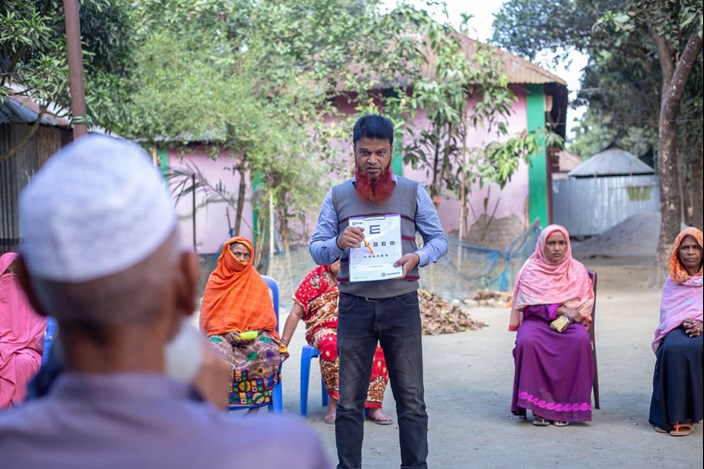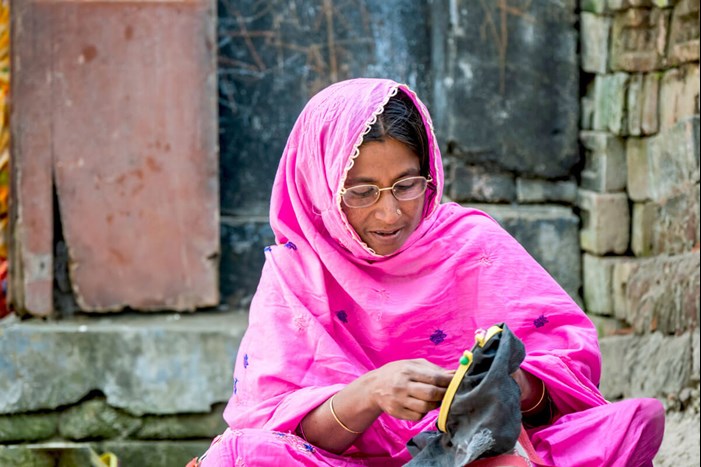
A pair of reading glasses increases the earnings of people in low-income communities by 33% according to new research.
A new randomised controlled trial has found that the provision of reading glasses improves livelihoods and quality of life and reduces poverty. VisionSpring, BRAC, and Queen’s University Belfast have released findings of their THRIVE study – Tradespeople and Hand-workers Rural Initiative for a Vision-enhanced Economy.
THRIVE, carried out across rural Bangladesh, is the first randomised controlled trial to measure the impact of reading glasses on income. The findings are of particular importance because no other health-related intervention has reported an effect size as large for income.
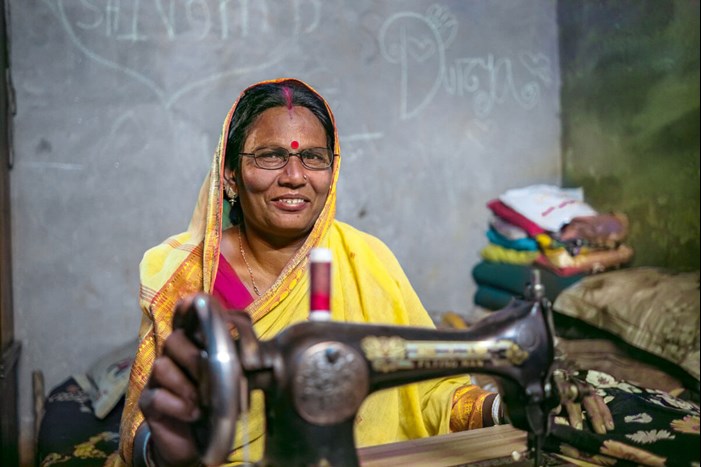
The results uncover a number of benefits for first-time wearers of reading glasses across a wide variety of rural occupations:
- Higher earnings – The monthly median income of an individual who received reading glasses increased from US$35.3 to US$47.1 within eight months, a difference of 33.4%, whereas the control group showed no increase.
- Returning to work – Income increases were higher among those who were not working at the start of the study, suggesting that reading glasses helped economically inactive people return to work.
- Not just for people who are literate – Reading glasses are not just for people who can read. Only 35% of participants in the study were literate. Reading glasses helped participants accomplish work and household tasks such as threading a needle, weaving, and sorting grain.
- Quality of life – Wearers experienced a 16% improvement on a near vision quality of life index. The index measures factors such as people’s sense of independence and ease of doing daily tasks, such as reading a mobile phone display and seeing the food they are preparing and eating.
- Widespread blurry vision – The trial found a substantial need for near glasses in this working population; 50% of those aged 35-65 years who had their eyes tested were identified to have presbyopia, the inability to see close up without help from glasses. This underscores the substantial potential for economic benefit with an inexpensive glasses intervention in this large and important group.
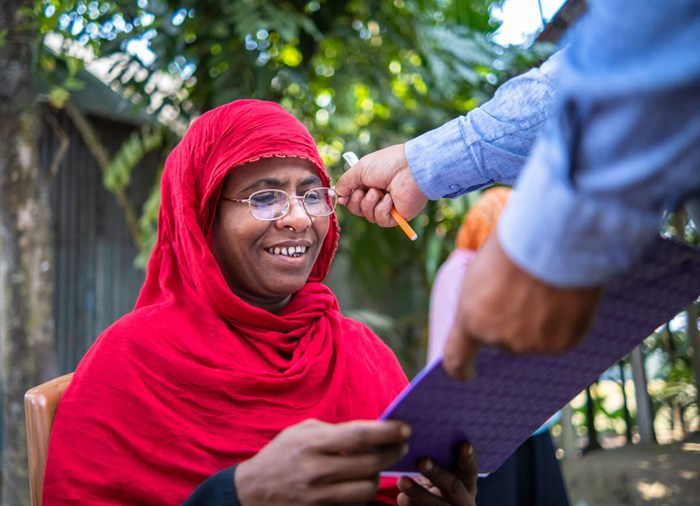
The THRIVE trial involved 824 people from 15 districts of Bangladesh. The study was carried out in communities significantly engaged in farming and artisan crafts and included participants such as teachers, tailors, shopkeepers, and mechanics. Participants were on average age 47 and 48% female.
THRIVE’s focus on income builds upon the findings of the PROSPER trial VisionSpring undertook which was the first-ever randomised controlled trial to explore the link between clear vision and productivity.
Ella Gudwin, the CEO of VisionSpring, comments: “The THRIVE study reveals that the simple intervention of reading glasses yields outsized impact in terms of income. We encourage governments, philanthropists, development agencies and the private sector to invest in vision correction as livelihood interventions. This evidence-based investment will boost individuals’ earnings as well as generate increased economic output and productivity that is good for communities and the wider economy.”
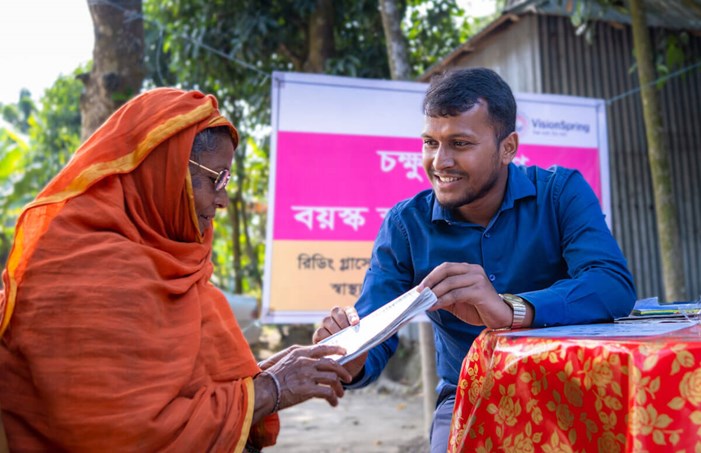
More than a billion people globally don’t have the glasses they need to see clearly. Presbyopia is the leading cause of vision impairment globally. Without reading glasses more than 826 million people have difficulty performing routine tasks and maximising their income earning potential.
A way forward for vision screening in low- and middle-income countries: task sharing
In addition to measuring the impact of reading glasses on worker income, the study highlighted the opportunity to increase access to vision care by training non-medical personnel such as community health workers to conduct basic sight tests and dispense readymade reading glasses.
All the screenings in the trial were conducted by non-medical personnel, as opposed to optometrists. By demonstrating that reading glasses dispensed by community health workers significantly improved income, THRIVE affirms the efficacy of this approach to improve livelihoods in low-income settings.
Last year the World Health Organisation introduced training for community health workers and primary care providers to identify presbyopia, dispense reading glasses, and refer for other eye conditions. This is the same task sharing methodology that VisionSpring and BRAC pioneered in 2002 and was used in this study.
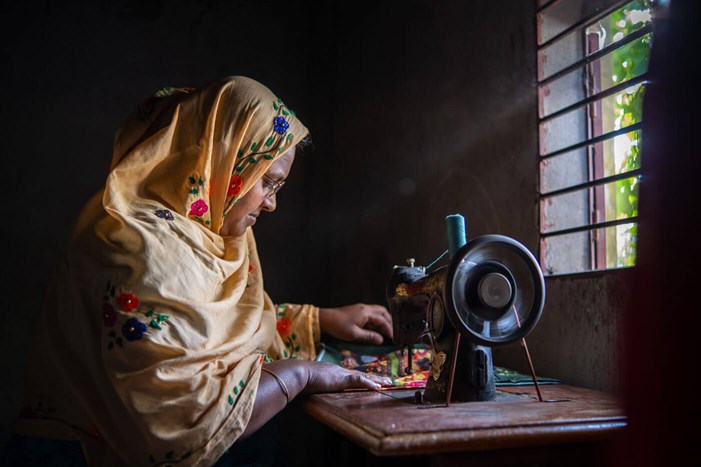
Dr. Nathan Congdon, MD, MPH, Ulverscroft Chair of Global Eye Health at Queen’s University Belfast said: “The findings of the THRIVE study demonstrate the power of reading glasses in helping reduce poverty. For the cost of only a few dollars a pair, reading glasses have a significant and sustained impact on an individual’s earnings and help others get back into work. Where people are vulnerable to poverty, we can have an immediate and dramatic impact on livelihoods through this extremely simple and cost-effective intervention.”
